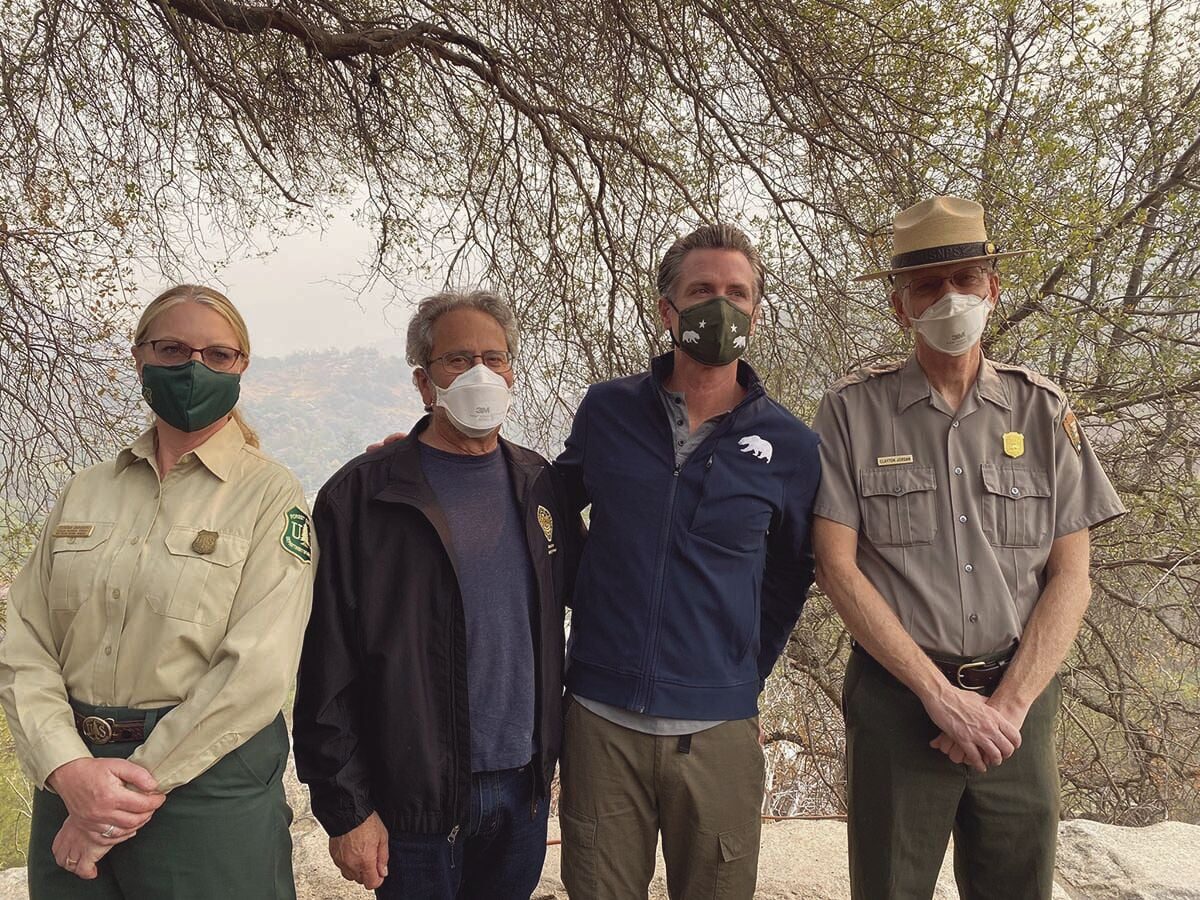
California, a known leader in environmental conservation policies, has just set an historic record by passing the largest climate package in state history.
The passage of SB170 sets aside more than $15 billion in funding to tackle what scientists say are pressing crises—wildfires and a worsening drought. Funds will also be used for the critical challenges in building climate resiliency in California communities, promoting sustainable agriculture and advancing a nation-leading climate agenda.
The historic climate package could be a much-needed boost for Malibu, still reeling from the 2018 Woolsey Fire that destroyed roughly 20 percent of housing stock in the city and hundreds of other homes in the 90265 zip code and beyond. One-and-a-half billion dollars from the package will be aimed at wildfire response and forest resilience. Governor Gavin Newsom recently signed the bill under ash-filled skies in Sequoia National Park where the KNP Complex Fire and the nearby Windy Fire have been burning for days. Smoke from the Northern California forest fires has been drifting southward, accounting for the recent hazy skies over Los Angeles and Ventura counties.
With a proliferation of forest fires in California and a new threat of fires burning near the state’s treasured giant sequoias, Newsom stated, “You can’t rebuild a giant sequoia … and that’s why we’re here with a deep sense of urgency.”
Newsom has also urged Californians to conserve water due to our latest drought emergency. Although the governor made his initial request of residents back in April, little has been done in the effort. So far, state water usage is only down a miniscule 1.8 percent statewide. As part of the climate package, $5.2 billion will address drought response and water resilience, while $3.9 billion will be used for electric vehicle investment and infrastructure. And $3.7 billion is for climate issues concerning extreme heat and sea level rise. The National Oceanic and Atmospheric Administration reported California and four other western states just recorded their hottest summers on record.
The legislation just signed by Newsom will likely be touted at the upcoming United Nations Climate Change conference coming up later this fall in Glasgow, Scotland. At his press conference signing the landmark bill, Newsom took some jabs at former President Donald Trump. The governor criticized the former president for failing to address climate change and mocking California when Trump said the answer to California’s many conflagrations was “buying more rakes.” The State of California owns just three percent of the state’s forest land. The federal government owns 57 percent—between national parks, national forests, the Bureau of Land Management and other federal institutions—while the rest is in private hands.
When asked for comment, State Senator Henry Stern emailed The Malibu Times, and pointed out some money is coming directly to Malibu’s backyard. In the past, Stern has spoken out to complain about seemingly lopsided fire prevention budgets, where the majority is allocated to the northern part of the state.
“Climate change isn’t one dimensional and the fires, ecology and development patterns we have in Southern California present unique challenges compared to Northern California. That’s why I’ve been fighting for the past three years to make sure our regional needs are funded appropriately,” Stern wrote. “That work is bearing fruit in this budget, with tens of millions of dollars going to the Santa Monica Mountains Conservancy, L.A. County Fire, local cities, resource conservation districts, fire safe councils and many others to pay for fire prevention and wildfire resilience work.”
One provision in the bill allocates $2 million to the Resource Conservation District of the Santa Monica Mountains to “assist in the recovery of the federally endangered southern steelhead trout.”
The Santa Monica Mountains Conservancy—or SMMC, one of the agencies under Executive Director Joe Edmiston—was to receive more than $40 million through various allocations.
The SMMC was to receive $10 million, “for projects that improve the climate resiliency or the protection of the Los Angeles River Watershed or are a part of the revitalization plan developed by the Upper Los Angeles River and Tributaries Working Group.” Another $11.1 million was earmarked for the SMMC “for climate resilience, wildfire prevention, community access, and natural resource protection,” while a further $15 million set aside for the SMMC did not appear to have stipulations on its spending, besides capping “administrative support costs” at five percent. Finally, $8 million is set aside for the SMMC to purchase the Triangle Ranch Property.
Even though SB170 is the largest bill of its kind, there are critics. One is Amy Moas, a senior climate campaigner for the outspoken NGO Greenpeace.
“Fifteen billion dollars is a lot of money, but if the governor really wants to future-proof California as he said, then he must know throwing money at the problem while continuing to approve new fossil fuel permits that are driving the climate chaos is nonsensical,” Moas said in a statement provided on the organization’s website. “It is like trying to stop an overflowing bathtub without first turning off the faucet.”
Assemblymember Richard Bloom, who represents Malibu in Sacramento, apparently disagrees tweeting, “This bill #SB170 boasts an unprecedented $15 billion commitment to wildfire prevention and climate resiliency. Once again, California leads the way.” Bloom wrote he was on hand for the signing of the bill, posting a picture of himself with Newsom, a U.S. Forest Service ranger and a California State Parks ranger under ashy skies.
